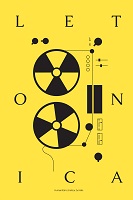Interpretation of the Theme of Night: A Case Study of Rainis’s Creative Laboratory
Interpretation of the Theme of Night: A Case Study of Rainis’s Creative Laboratory
Author(s): Zane ŠiliņaSubject(s): Latvian Literature, Sociology of Culture, Theory of Literature, History of Art
Published by: Latvijas Universitātes Literatūras, folkloras un mākslas institūts
Keywords: Lay; ‘creative thoughts’; poetry; ambivalence of night; light; interaction of opposites;
Summary/Abstract: The writings of Latvian poet and playwright Rainis (real name Jānis Pliekšāns, 1865–1929) are characterized by deep roots in world culture, extensive creative ideas, a continuous artistic quest, and an effort to cultivate individual artistic expression. Rainis was not only a writer and translator, but also an active supporter of socialism and national statehood. In 1897, due to his political beliefs, he was arrested and exiled to Pskov and later to Slobodsk in Vyatka Governorate (1898–1903). After the tragic events of 1905, Rainis, along with his spouse, the poet Aspazija (real name Elza Rozenberga, 1865–1943), abandoned Latvia, going into exile to Castagnola in Switzerland and returning to Latvia only in 1920. A wide range of sources has been used in research about Rainis. These include his finished and published works in various editions, their translations into foreign languages, and translations of other authors’ works by Rainis himself. His literary heritage also includes his unfinished works and variants of manuscript texts, his correspondence and diaries, and various documents of the era. There are also his so-called creative thoughts1 or notes, in which the poet has identified both purposefully developed and sometimes spontaneous ideas arising from contemplation on a particular work to be created, as well as focusing on the development of themes and artistic images that, due to their idealistic ambition and expansion, exceed materials to be included in individual works. This rich set of texts reflects Rainis’s creative laboratory: the birth of ideas, the evolution of ideas, themes, and artistic images, the search for the form of a literary work, the contradictions faced by the poet in the creative process, resolved and unresolved artistic issues, and the creative impulses that have guided the poet on this complicated course. Research of Rainis’s creative laboratory is important not only as a separate case in the history of literature and drama, but also as a significant contribution to the research of artistic creative processes, especially in the changing cultural paradigm that Latvia experienced in the late nineteenth and early twentieth centuries.
Journal: Letonica
- Issue Year: 2022
- Issue No: 46
- Page Range: 210-226
- Page Count: 17
- Language: English

